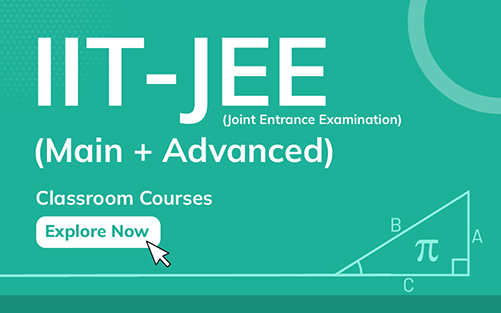How many hours to study daily for NEET?

How many hours should I study daily for the NEET? Generally, every NEET aspirant had this thought at least once in their mind. Some may have twice as many. But no one really knows the answer; actually, there is no answer to this question. What if we asked you how many rotis one should eat daily, how much rice one should eat daily, or how much one should walk daily? What would be your answer to this question? You would definitely say, what a bogus question is this? There is no answer to this question; everyone eats, sleeps, or walks according to their needs. So similarly, there is no specific answer to the question of daily studying hours. Every student is different; everyone has a different level of understanding, concept clarity, and concept grasping power, so there is no bar or threshold that one should have to study for a particular number of hours. Also, studying long hours doesn’t guarantee success, and studying for fewer hours doesn’t make sure that one will fail the examination.
Toppers study schedule
Generally, most of the aspirants look to topper’s strategy and schedule. They try to follow every single thing that topper has done. However, this is not recommended; following someone blindly merely because they are a topper is not wise. Every student has a different level of concepts, so everyone needs to have their own unique strategy and schedule.
Most of the NEET toppers prepare early; they don’t waste time deciding the right time for their preparation. Most of the toppers start preparing for NEET in 9th or 10th class itself. Therefore, they have strong basic knowledge, which reduces their hard work in preparation a bit. But that doesn’t mean they don’t burn midnight oil. Also, an early start gives them extra time to prepare mentally for the exam.
General Study Schedule
We have mentioned above that every student is different, so the strategy for every student will also be different.
So, in this blog, we have divided the students into four categories and discussed the strategy for each of them in detail.
Category 1: Students who are in their 11th class and are about to start their preparation
Most of the students fall into this category. They have two years before the actual examination. Both serious and non-serious candidates fall into this category. The extra time can act as a boon as well as a curse, depending on the aspirant’s mindset. If someone wishes to utilize this time, then this is the best time, as students can do well in school exams and competitive exams as well as in single preparation. However, students have to work really hard in these two years; they have to manage academics along with competition. Students have enough time so that they can strengthen their basics and prepare tough concepts with relative ease. They should not rush through multiple topics in one sitting but rather focus on concept development, problem practice, and solving previous-year problems.
Category 2: Students enrolled in their 12th class
Those students who are in 12th class have only one year for their preparation. They have to manage their board exams along with the NEET examination; therefore, they have a very high work load. They should be very careful and have to maintain the balance between the board’s examination and competitive competition. They should focus on more of those concepts that are common for the board’s exam as well as in the NEET. After the board’s exam, they should revise the whole 11th and 12th classes as much as possible, keeping more focus on the concepts of the 12th class.
Category 3: Students who are pass out/ Droppers
These students generally have 1 year for their preparation and since they are school pass-outs, so they don’t have to worry about their academics or the board’s exam, which gives them an extra edge over other students, and hence they can prepare devotedly for the NEET exam. However, they have to work hard as they have to complete a 2-year syllabus in one year. Also, most of the dropper candidates don’t have very good basic concepts, so they have to work on their basics in order to get selected. However, most of the dropout students find it difficult to sit continuously for long hours due to breaks in their studies. If students prepare sincerely, then they have the best chance of getting selected for their dream college. For one year, these students should have only one aim: to get selected at their dream MBBS college.
Category 4: Students of Foundation Courses
These students are just in the initial phase of their preparation; most of them have just started dreaming about their careers. They need extra guidance and support in comparison to others. These students should not think about competition; rather, they just need to focus on increasing their concentration, sitting hours, and strengthening basic concepts. Also, they should not spend their whole time just around the books; rather, they should manage their time so that they get enough time for sports and other physical activities.
General tips to crack NEET Exam
The key strategy to crack any examination is different for every candidate; however, every candidate should follow certain tips to excel in the examination.
- Get the updated syllabus for the NEET examination. An updated syllabus helps filter out topics that are not relevant for the examination. Keep yourself updated regarding the exam pattern and eligibility criteria. Click here to get detailed information about the NEET exam.
- Make a realistic timetable, not an ideal one. But what exactly does a realistic timetable mean? A realistic timetable means that it can be followed. It should be flexible with time.
- Consistency is the key. An aspirant should stay consistent during their preparation. Consistency matters a lot!
- Keep revising until you achieve your desired result. Revise the syllabus multiple times; attempt mock tests no matter what marks you are getting; just attempt them wholeheartedly. Note down your mistakes, analyze them, and try not to repeat them in the future. Practice the previous year’s questions, solve them separately, note down important points, and revise them.
- Prepare short notes. Short notes are very helpful in revision. Always try to make good, short notes that cover all the syllabus and can be used before the examination for quick revision.
- Avoid distractions; distractions can be of any type. Anyone who is preparing for exams should avoid all sorts of distractions.
- Limit the use of social media. Social media is a great time killer; aspirants should try to avoid it or limit their usage to a minimum.
- Avoid conflicts. Conflicts can disturb the mental status and peace of aspirants, due to which students can’t stay focused on their studies. Therefore, a wise aspirant should avoid conflicts at any cost.
- Blindly following toppers. Toppers are not God, and one should not follow them or their sayings blindly. Every aspirant has a different knowledge level and conceptual understanding, and hence one should think clearly before following any strategy. A wise aspirant is one who makes and changes the strategy as per the conditions.
- Stay calm and happy. Aspirants should not put unnecessary pressure of exams. They should keep themselves in preparation mode but should avoid unnecessary pressure about the exams and results. Also, students can follow some mind relaxing techniques to keep themselves stress-free. Remember, the duty of the aspirant is to prepare honestly for the exam; you can’t decide the result. One should keep in mind that:
कर्मण्येवाधिकारस्ते मा फलेषु कदाचन । मा कर्मफलहेतुर्भुर्मा ते संगोऽस्त्वकर्मणि ॥
which means that you have the right to work but not to its results. Let not the fruits of action be your motive, nor let your attachment be to inaction.
- Avoid negative people. The journey of any aspirant is not easy. They encounter a lot of people, some of whom are helpful, motivating, and optimistic, while others are demotivating, demoralizing, and pessimistic. So, it’s very important for the aspirant to filter out negative people.
- Don’t avoid your family, friends, and loved ones. The support of friends and family is very important in exams as well as in life. It doesn’t let you feel alone or demotivated.
- Health is wealth. Generally, the most ignored or least focused thing in the life of any aspirant is their health. An aspirant should never ignore their health; bad health can put a break in your studies, which can affect the NEET exam.
- Align your schedule with the exam schedule. Always try to align your schedule with the exam schedule. For example, if you have the habit of sleeping in the afternoon and your exam is scheduled in the afternoon, try to change the habit so it doesn’t affect you in the exams. These are certain points that an aspirant should definitely follow apart from their regular timetable.
FAQs:
Is studying 3 hours a day enough for NEET?
There is no specific time period for NEET. If you are well versed in each and every concept, you are getting good marks in mocks, and you can solve every previous year question without any difficulties, then even 3 hours are more than sufficient. If not, then you shouldn’t look at the clock while studying.
How important is it to take breaks during NEET study sessions?
Taking breaks is very important; one should not sit for very long hours, but breaks should not be very long. A 15-minute break after 2 hours of study is good; resting depends on the aspirants.
How should we study to become a NEET topper?
Study should be goal-oriented; one should study according to the latest syllabus and avoid studying too-deep or higher-level topics that are not relevant for the exam. Also, regular revision and constant practice/mock tests are equally important.
How many hours should a NEET aspirant study in class 12th?
There is no scientific research that can answer how many hours one should study. Aspirants should study according to their strategy, concept level, and syllabus.
















